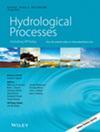Assessing Water Requirements of Groundwater Dependent Ecosystems Using a Water Balance Approach and Streamflow Separation
Abstract
Groundwater supports approximately one -third of global water consumption. With increasing pressures on this resource from both anthropogenic users and climatic influences, sustainable management of groundwater has become crucial. This article identifies groundwater requirements by Groundwater Dependent Ecosystems (GDEs) as groundwater evapotranspiration and groundwater discharge to surface water features (baseflow). These requirements are investigated using a soil moisture model combined with a water balance approach, baseflow separation techniques and groundwater level monitoring. The results are compared to groundwater evapotranspiration estimates based on diurnal water level fluctuations. For the period 2000 to 2019, the combined GDE requirements, including groundwater evapotranspiration and environmental baseflow requirements, ranged from 130 to 420 mm/year for the highest ecological indicator level within the study area of approximately 20 km2. These estimates provide valuable information on the short-term (daily to monthly) to long-term (yearly to multi yearly) responses to climate variations and can be integrated into water stress assessments. These findings can be used to enhance our understanding of the role of GDEs water requirements and contribute to managing GDEs as part of sustainable management of groundwater resources.

 求助内容:
求助内容: 应助结果提醒方式:
应助结果提醒方式:


